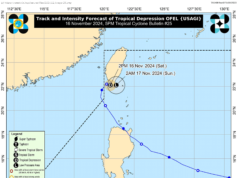For decades, scientists, spies and chemical weapons specialists have known about and feared the lethal substance.
Few people had heard of the nerve agent Novichok until 2018, when Western officials accused Russia of having used it in the attempted assassination of a former spy in Britain. It returned abruptly to the headlines on Wednesday, when Germany said the poison had sickened the Russian dissident Alexei A. Navalny. But for decades, scientists, spies and chemical weapons specialists have known about and feared Novichok. It is a potent neurotoxin, developed in the Soviet Union and Russia in the 1980s and 90s, that can be delivered as a liquid, powder or aerosol, and is said to be more lethal than nerve agents that are better known in the West, like VX and sarin. The poison causes muscle spasms that can stop the heart, fluid buildup in the lungs that can also be deadly, and damage to other organs and nerve cells. Russia has produced several versions of Novichok, and it is anyone’s guess how often they have actually been used, experts say, because the resulting deaths can easily escape scrutiny, appearing like nothing more sinister than a fatal heart attack. That may have been the plan in the case of Sergei V. Skripal, a former Russian spy living in Salisbury, England. When Mr. Skripal was found barely conscious in a park on March 4, 2018, there was no obvious reason to suspect poisoning — except that his daughter, who was visiting, was with him, suffering the same symptoms.






